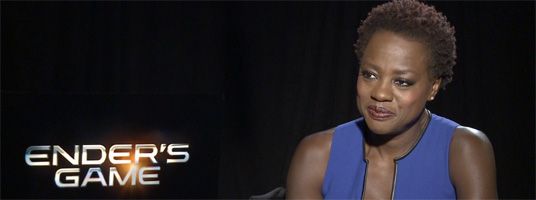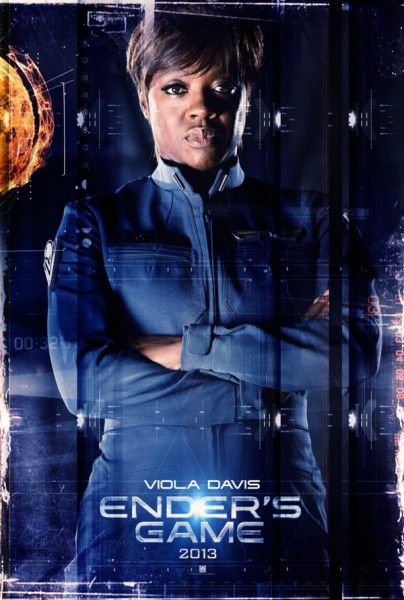It’s rare when a big budget studio film tackles weighty and controversial issues. The bigger the budget, the more the film must appeal to a mass audience (or so the thinking goes). It’s the typical four-quadrant-attempting-to-please-everyone-but-actually-pleasing-no-one bullshit. Ender’s Game is the rare exception: a film with an immense multi-million dollar price tag that’s also willing to tackle difficult socio-political issues. Viola Davis (The Help) co-stars as Major Gwen Anderson, the moral conscience of the picture, diametrically opposed to Harrison Ford’s gruff “by any means necessary” counterpart Colonel Graff. The two spend the majority of Ender’s Game getting into heated debates over the implication of using children during war, the applicability of morality during wartime and the often blood-soaked cost of creating a ‘utopia’. Weighty issues for a film ostensibly about children blowing up alien spaceships.
In the following interview with Viola Davis, the actress discusses the weighty implications of Ender’s Game, where she draws from to create characters and the differences in starring in big budget versus low budget sci-fi. Davis also touched upon her time working on the upcoming Michael Mann film Cyber, which she described as “the biggest ride of her life.” For the full interview, hit the jump. Ender's Game opens this Friday in theaters.
Viola Davis:
- Ender’s Game marks Viola Davis’s first science fiction film since Solaris. What are the differences in starring in a low budget sci-fi film like Solaris versus the bigger budgeted Ender’s Game?
- How timely is Ender’s Game release now?
- Did Viola Davis look to the book for help in defining her character?
- How was it like working with Michael Mann on his upcoming film Cyber?


